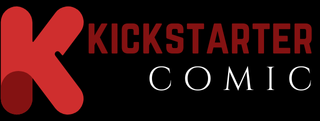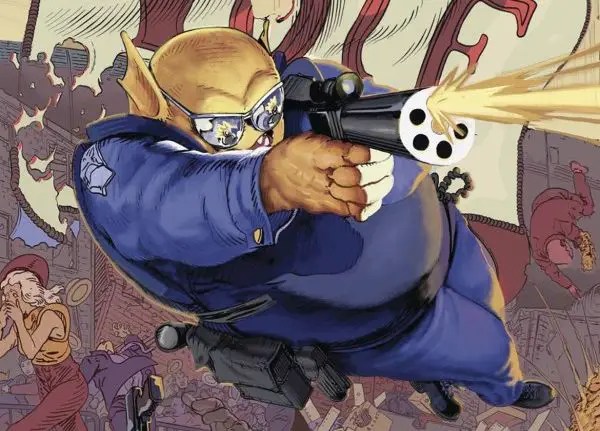When Justice Warriors: Vote Harder crossed my desk right after the election, it might not have been the right time to read it. The shock of the election results hit me hard, and I desperately wanted to crawl into a hole and escape the oncoming barrage of debate. I knew I was going to start winding down, but it all left me feeling despised and exhausted.
The satire about a troubled election, no matter how absurd and extreme Justice Warriors is, felt counterproductive to my urge to bury my head in the sand.
At best, satire is not meant to soothe societal burns or reflect the political views of marginalized communities, but rather to speak to power, highlight grievances, and accurately address the issues of a cultural time. The purpose is to point out (and uplift) the. And the location.
oh hi
Vote Harder may not accurately speak to this time and space. The book, released in September, was written in a very different era, perhaps when the Democratic nominee was Joe Biden rather than Kamala Harris. A time when even the most ardent progressive optimists were consumed by bitter pessimism.
Ahoy Comics
This is probably what formed the central story of Voort Harder. The story revolves around an unprecedented mayoral election in Bubble City, a sci-fi supercity. Bubble City is ruled by a vain and clueless pop star, weakened by his sister’s kicks. The wheels of an election that had not been used for a long time began to turn. The real world resonance is: It’s either about the same or more the same. Retain ineffective candidates or switch to virtually replaceable candidates. Granted, the election of Biden and Trump wasn’t “one for the other,” but it’s something we’ve already experienced with two candidates we knew were lackluster and potentially dangerous. did.
This book proposes a more radical approach to usurping that indecipherable shift in power deep within that walking shitty human and human-tank hybrid: revolution. The tanker has chosen to become a third party in the election, rallying behind her political and economically barren dissidents. There is an atmosphere of potential and literal violence. After all, this world, like ours, is a world of casual and rampant police brutality. Add to that the threat of an assassination attempt in the very real world – after all, that very reality happened less than two months before the release of Justice Warriors: Vought Harder .
oh hi
I doubt whether this book succeeds in “speaking to those in power” (the characters in power are just as unreachable and untouchable as we humans are), but , this book highlights real-life frustrations and worries. Violence by the state against its people reaches its clearly militarized conclusion here. Basic human needs are not being met and the poor are becoming poorer. What’s worse, these characters seem to feel that somehow they deserve this treatment. This system has been set up so heavily for them, and they have struggled under it for so long, that it feels like an inescapable fact of reality.
Vote Harder speaks to a world like ours, one that hedges its bets and remains unmoved rather than trying to predict the final outcome of the 2024 election. This book is determined that ultimately it doesn’t matter, because the antics of our major players have little impact on these oppressive systems – Biden, Harris , or Trump, the machinations of our democracy cannot withstand rebellion or change, no matter how violent that revolution may be.
It’s a bleak end result, almost aggressively pessimistic (or even nihilistic). That pessimism turned out to be justifiable means that, no, Justice Warriors: Vote Harder is not a book to comfort yourself after a major political blow. Again, that’s not the purpose of satire. This is a book that wakes you up from the urge to hide and makes you think a little bit about how we need to deal with the mechanics of change so that something like this doesn’t happen again every election season.


